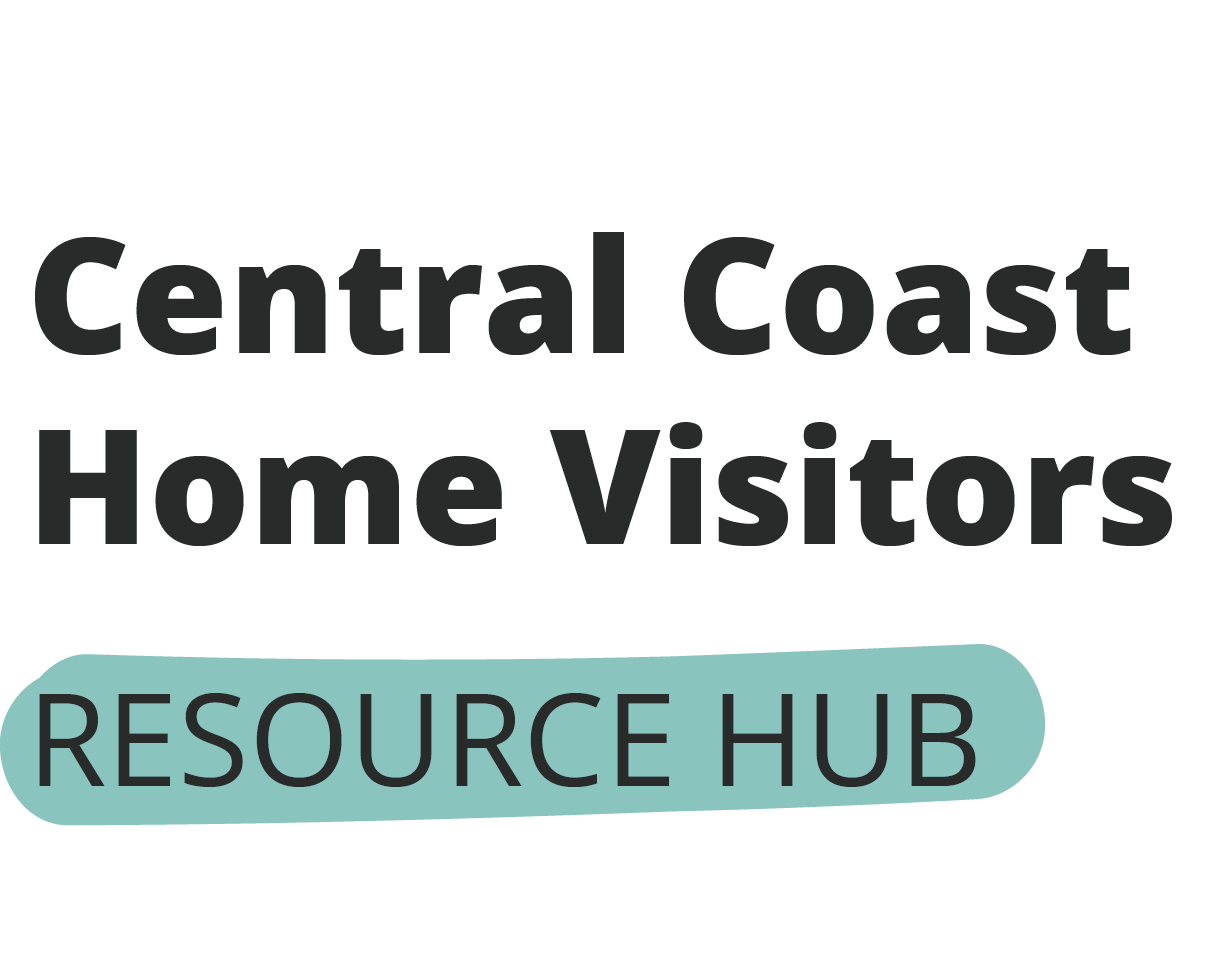Professional Development Training Menu

The Core Competency Domains listed on this page are a combination of recommendations by the National Home Visiting Resource Center Brief dated September 2019, the National Family Support Competency Framework 2022 Edition developed by the Institute for the Advancement of Family Support Professionals, and the Zero to Three P-5 Competency Domains. The training topics are a compilation of the First 5 survey and interviews that were conducted with home visitors and supervisors throughout the tri-counties and literature reviews.
Use the buttons below to jump to the core competency domains and training topics for the role that is relevant to you.
Nurse Home Visitor
Child Health, Safety and Nutrition
- Basic Newborn Care
- Infant Massage
- Infant Nutrition and Feeding
- Lactation and Breastfeeding
- Perinatal Substance Abuse
- Responsive Feeding
- Safe Sleep
- Substance Exposed Newborns
Infant and Early Childhood Development
- Basic Child Development – Ages and Stages
- Brain Development
- Developmental Delays
- Early Language and Literacy Development
- Early Social-Emotional Development
- Infant Crying
- Prenatal and Infant Development
Family Health, Safety and Nutrition
- Child Abuse Prevention – Protective Factors
- Determinants of Health
- Healthy Homes
- Labor and Birth
- Maternal Health – Postpartum Care
Effective Home Visits
- Case Management
- Father Engagement
- Time Management
Parent-Child Interactions
- Bonding and Attachment
- Facilitating Attuned Interactions
- Parent-Child Interactions
- Parenting Styles
Professional and Ethical Practices
- Mandated Reporting
- Professional Boundaries
Relationship-Based Family Partnerships
- Adult Learning
- Conflict Resolution
- Empowering Families
- Family-Centeredness Approach
- Family Goal Development
- Motivational Care
- Motivational Interviewing
- Promoting Resiliency
Diversity, Equity, Inclusion and justice including Cultural and Linguistic Responsiveness
- Cultural Competency and Humility
- Cultural Sensitivity
- Dual Language Learning
- Health Equity
- Implicit Bias
- Serving Children and adults with disabilities
- Home Visiting with Mixtec Families
- LGBTQ+ Families
Dynamics of Family Relationships
- Domestic Violence in Home Visiting
- Family Risks and Stressors
- Family Systems
- Substance Abuse and Home Visiting
- Trauma in Families
Community Collaboration & Resources
- Current Local Resources including WIC, CalFresh, CalWorks
- Matching Family Needs to Resources
- Making Referrals
Health and Developmental Risk and Protective Factors
- Adverse Childhood Experiences – ACES
- Children with Challenging Behaviors
- Perinatal Mental Health
- Trauma Informed Practices
- Safe Spaces
- Vicarious Trauma
Professional Well Being
- Home Visitor Safety
- Self-Care and Stress Management
Screening and Assessment
- ACES Assessment
- Child Developmental Screening
- ASQ
- ASQ-SE
- SWYC
- Developmental Milestone – Typical and Atypical Development
- EPSD Screening – Postpartum Depression
- Observing the Parent-Child Relationship
- Perinatal Mood Disorders
Early Head Start Home Visitor
Child Health, Safety and Nutrition
- Basic Newborn Care
- Infant Nutrition and Feeding
- Perinatal Substance Abuse
- Responsive Feeding
- Safe Sleep
- Substance Exposed Newborns
Infant and Early Childhood Development
- Basic Child Development – Ages and Stages
- Brain Development
- Developmental Delays
- Early Language and Literacy Development
- Early Social-Emotional Development
- Infant Crying
- Prenatal and Infant Development
Family Health, Safety and Nutrition
- Child Abuse Prevention – Protective Factors
- Healthy Homes
Effective Home Visits
- Case Management
- Father Engagement
- Time Management
Parent-Child Interactions
- Bonding and Attachment
- Facilitating Attuned Interactions
- Parent-Child Interactions
- Parenting Styles
Professional and Ethical Practices
- Mandated Reporting
- Professional Boundaries
Relationship-Based Family Partnerships
- Adult Learning
- Conflict Resolution
- Empowering Families
- Family-Centeredness Approach
- Family Goal Development
- Motivational Care
- Motivational Interviewing
- Promoting Resiliency
Diversity, Equity, Inclusion and justice including Cultural and Linguistic Responsiveness
- Cultural Competency and Humility
- Cultural Sensitivity
- Dual Language Learning
- Health Equity
- Implicit Bias
- Serving Children and adults with disabilities
- Home Visiting with Mixtec Families
- LGBTQ+ Families
Dynamics of Family Relationships
- Domestic Violence in Home Visiting
- Family Risks and Stressors
- Family Systems
- Substance Abuse and Home Visiting
- Trauma in Families
Community Collaboration & Resources
- Current Local Resources including WIC, CalFresh, CalWorks
- Matching Family Needs to Resources
- Making Referrals
Health and Developmental Risk and Protective Factors
- Children with Challenging Behaviors
- Perinatal Mental Health
- Trauma Informed Practices
- Safe Spaces
- Vicarious Trauma
Professional Well Being
- Home Visitor Safety
- Self-Care and Stress Management
Screening and Assessment
- ACES Assessment
- Child Developmental Screening
- ASQ
- ASQ-SE
- SWYC
- Developmental Milestone – Typical and Atypical Development
- EPSD Screening – Postpartum Depression
- Observing the Parent-Child Relationship
- Perinatal Mood Disorders
Community Health Worker
Child Health, Safety and Nutrition
- Basic Newborn Care
- Infant Nutrition and Feeding
- Perinatal Substance Abuse
- Responsive Feeding
- Safe Sleep
- Substance Exposed Newborns
Infant and Early Childhood Development
- Basic Child Development – Ages and Stages
- Brain Development
- Developmental Delays
- Early Language and Literacy Development
- Early Social-Emotional Development
- Infant Crying
- Prenatal and Infant Development
Family Health, Safety and Nutrition
- Child Abuse Prevention – Protective Factors
- Healthy Homes
- Labor and Birth
Effective Home Visits
- Case Management
- Father Engagement
- Time Management
Parent-Child Interactions
- Bonding and Attachment
- Facilitating Attuned Interactions
- Parent-Child Interactions
- Parenting Styles
Professional and Ethical Practices
- Mandated Reporting
- Professional Boundaries
Relationship-Based Family Partnerships
- Conflict Resolution
- Empowering Families
- Family-Centeredness Approach
- Motivational Care
- Motivational Interviewing
- Promoting Resiliency
Diversity, Equity, Inclusion and justice including Cultural and Linguistic Responsiveness
- Cultural Competency and Humility
- Cultural Sensitivity
- Dual Language Learning
- Health Equity
- Implicit Bias
- Serving Children and adults with disabilities
- Home Visiting with Mixtec Families
- LGBTQ+ Families
Dynamics of Family Relationships
- Domestic Violence in Home Visiting
- Family Risks and Stressors
- Family Systems
- Substance Abuse and Home Visiting
- Trauma in Families
Community Collaboration & Resources
- Current Local Resources including WIC, CalFresh, CalWorks
- Matching Family Needs to Resources
- Making Referrals
Health and Developmental Risk and Protective Factors
- Adverse Childhood Experiences – ACES
- Children with Challenging Behaviors
- Perinatal Mental Health
- Trauma Informed Practices
- Safe Spaces
- Vicarious Trauma
Professional Well Being
- Home Visitor Safety
- Self-Care and Stress Management
Screening and Assessment
- ACES Assessment
- Developmental Milestone – Typical and Atypical Development
- EPSD Screening – Postpartum Depression
- Observing the Parent-Child Relationship
- Perinatal Mood Disorders
Administrator
Infant and Early Childhood Development
- Brain Development
- Developmental Delays
- Early Language and Literacy Development
- Early Social-Emotional Development
- Prenatal and Infant Development
Family Health, Safety and Nutrition
- Child Abuse Prevention – Protective Factors
Effective Home Visits
- Case Management
- Father Engagement
Professional and Ethical Practices
- Mandated Reporting
- Professional Boundaries
Relationship-Based Family Partnerships
- Adult Learning
- Conflict Resolution
- Empowering Families
- Family-Centeredness Approach
- Family Goal Development
- Motivational Care
- Motivational Interviewing
- Promoting Resiliency
Diversity, Equity, Inclusion and justice including Cultural and Linguistic Responsiveness
- Cultural Competency and Humility
- Cultural Sensitivity
- Dual Language Learning
- Health Equity
- Implicit Bias
- Serving Children and adults with disabilities
- Home Visiting with Mixtec Families
- LGBTQ+ Families
Dynamics of Family Relationships
- Domestic Violence in Home Visiting
- Family Risks and Stressors
- Family Systems
- Substance Abuse and Home Visiting
- Trauma in Families
Community Collaboration & Resources
- Current Local Resources including WIC, CalFresh, CalWorks
- Matching Family Needs to Resources
- Making Referrals
Health and Developmental Risk and Protective Factors
- Adverse Childhood Experiences – ACES
- Children with Challenging Behaviors
- Perinatal Mental Health
- Trauma Informed Practices
- Safe Spaces
- Vicarious Trauma
Professional Well Being
- Home Visitor Safety
- Self-Care and Stress Management
- Staff Mental Wellness
Screening and Assessment
- ACES Assessment
- Child Developmental Screening
- ASQ
- ASQ-SE
- SWYC
- Developmental Milestone – Typical and Atypical Development
- Perinatal Mood Disorders
Other Home Visitors
Child Health, Safety and Nutrition
- Basic Newborn Care
- Infant Nutrition and Feeding
- Perinatal Substance Abuse
- Responsive Feeding
- Safe Sleep
- Substance Exposed Newborns
Infant and Early Childhood Development
- Basic Child Development – Ages and Stages
- Brain Development
- Developmental Delays
- Early Language and Literacy Development
- Early Social-Emotional Development
- Infant Crying
- Prenatal and Infant Development
Family Health, Safety and Nutrition
- Child Abuse Prevention – Protective Factors
- Healthy Homes
Effective Home Visits
- Case Management
- Father Engagement
- Time Management
Parent-Child Interactions
- Bonding and Attachment
- Facilitating Attuned Interactions
- Parent-Child Interactions
- Parenting Styles
Professional and Ethical Practices
- Mandated Reporting
- Professional Boundaries
Relationship-Based Family Partnerships
- Adult Learning
- Conflict Resolution
- Empowering Families
- Family-Centeredness Approach
- Family Goal Development
- Motivational Care
- Motivational Interviewing
- Promoting Resiliency
Diversity, Equity, Inclusion and justice including Cultural and Linguistic Responsiveness
- Cultural Competency and Humility
- Cultural Sensitivity
- Dual Language Learning
- Health Equity
- Implicit Bias
- Serving Children and adults with disabilities
- Home Visiting with Mixtec Families
- LGBTQ+ Families
Dynamics of Family Relationships
- Domestic Violence in Home Visiting
- Family Risks and Stressors
- Family Systems
- Substance Abuse and Home Visiting
- Trauma in Families
Community Collaboration & Resources
- Current Local Resources including WIC, CalFresh, CalWorks
- Matching Family Needs to Resources
- Making Referrals
Health and Developmental Risk and Protective Factors
- Adverse Childhood Experiences – ACES
- Children with Challenging Behaviors
- Perinatal Mental Health
- Trauma Informed Practices
- Safe Spaces
- Vicarious Trauma
Professional Well Being
- Home Visitor Safety
- Self-Care and Stress Management
Screening and Assessment
- ACES Assessment
- Child Developmental Screening
- ASQ
- ASQ-SE
- SWYC
- Developmental Milestone – Typical and Atypical Development
- EPSD Screening – Postpartum Depression
- Observing the Parent-Child Relationship
- Perinatal Mood Disorders
